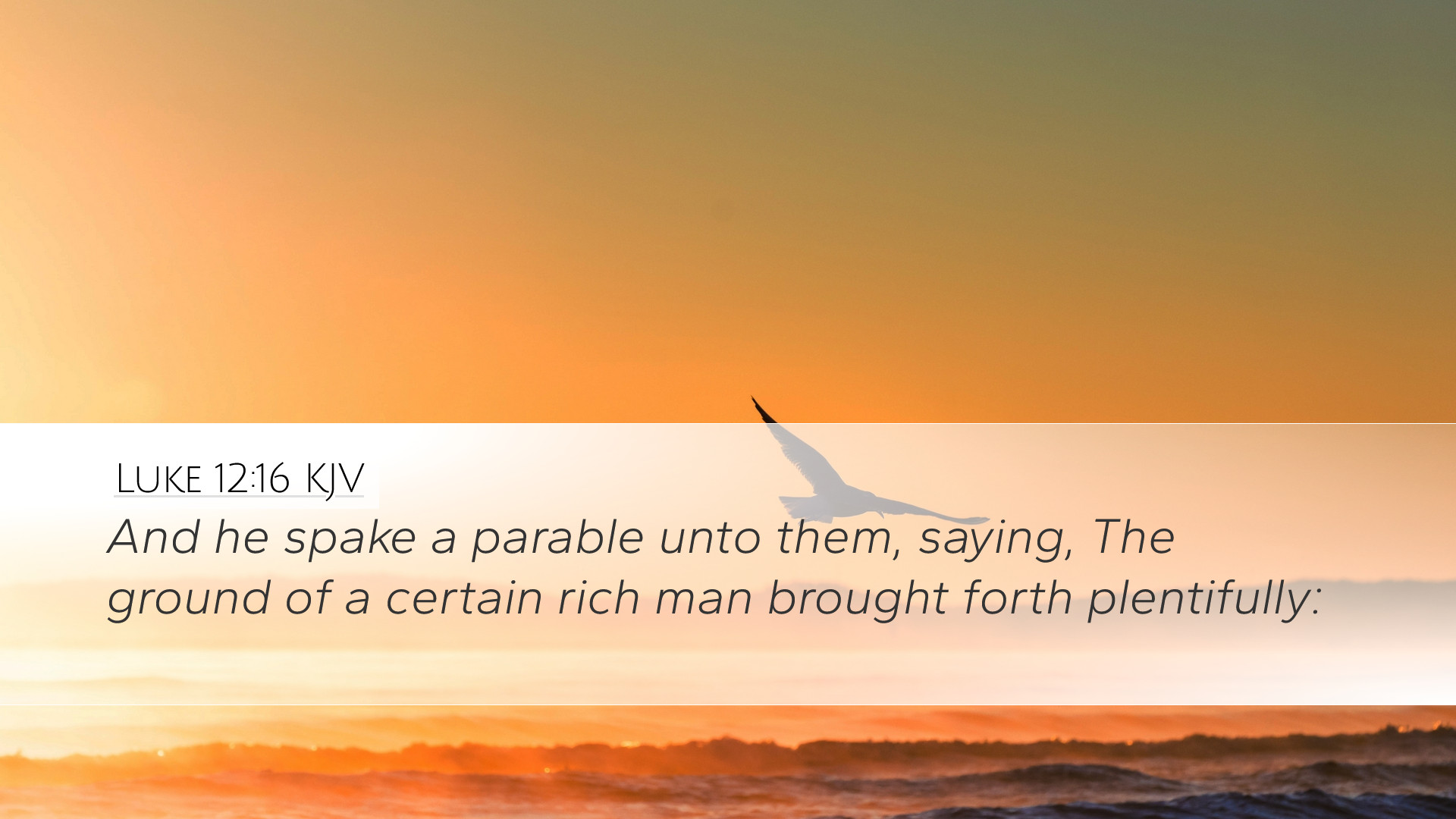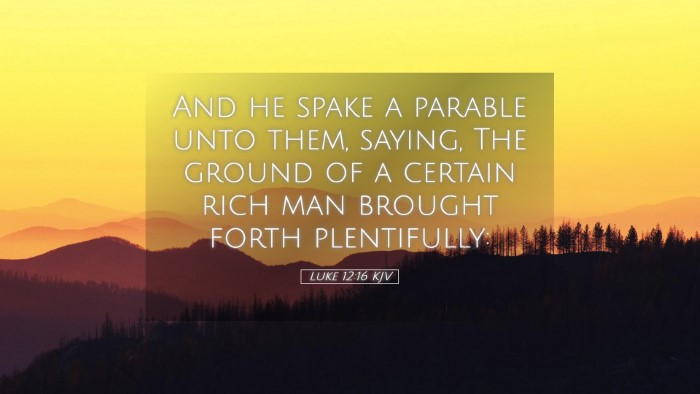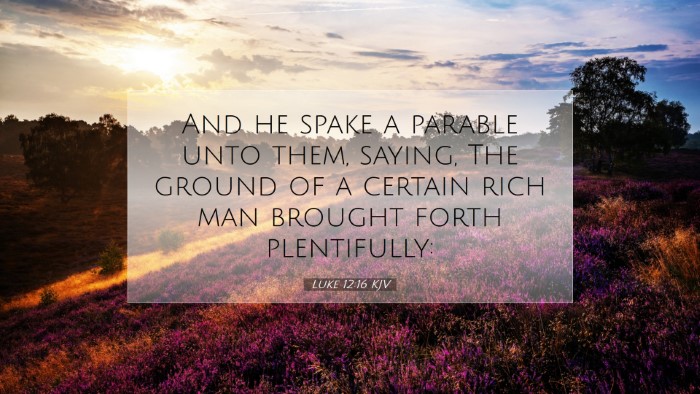Commentary on Luke 12:16
In Luke 12:16, Jesus tells a parable about a rich man whose land produced an abundant harvest. This verse serves as a springboard for profound reflection regarding wealth, greed, and the transient nature of earthly possessions.
1. The Context of the Parable
This parable arises in the larger context of Jesus teaching about the dangers of covetousness and the righteousness that should accompany wealth. It is significant to note that this teaching is directed toward not simply the greedy but also toward those who might be tempted to place their trust in material provisions.
Exegesis of the Verse
Luke 12:16 states:
“And he told them this parable: The ground of a certain rich man produced a good crop.”
2. Understanding the Rich Man’s Blessing
The rich man represents those who prosper in earthly riches. The mention of a bountiful harvest signifies God’s provision and blessings. However, as Matthew Henry notes, the parable emphasizes that it is not merely the wealth itself that is problematic but the attitude towards it—particularly, the disposition of self-sufficiency and independence from God.
3. The Warning Against Greed
As Adam Clarke points out, the rich man’s thought process reveals a heart consumed with greed. Instead of recognizing his wealth as a stewarded gift from God, he reflects solely on his gain, asking, “What shall I do, for I have no room where to bestow my fruits?” Here lies the crux of the lesson: the human inclination to hoard rather than distribute.
Reflection on Materialism
Albert Barnes expands on this by discussing the nature of materialism. The rich man’s preoccupation with his possessions blinds him to the needs of others and the ultimate purpose of wealth—serving God and neighbor. This portrayal serves as a warning to contemporary readers about the allure of material wealth and the potential to forget spiritual responsibilities.
4. The Rich Fool’s Philosophy
The parable continues with the rich man's delusion of security. He considers his abundant yield as a means for a carefree future: “I will say to my soul, ‘Soul, you have many goods laid up for many years; take your ease; eat, drink, and be merry’” (Luke 12:19). This worldview reflects a tragic misunderstanding of life’s temporality.
The Futility of Self-Sufficiency
Matthew Henry emphasizes that this perspective only breeds futility. To rely solely on material goods for comfort is to embrace a false sense of security. As Clarke remarks, the man’s focus on “many years” is misguided; life is uncertain, and his soul is demanded of him that very night. Thus, his wealth becomes meaningless in the face of death.
5. The Consequences of a Misplaced Heart
The conclusion of this parable challenges listeners to examine where their true worth lies. Jesus concludes the story by stating, “So is he who lays up treasure for himself, and is not rich toward God” (Luke 12:21). This premise serves to expose the flaw of accumulating earthly treasure at the expense of spiritual wealth.
Richness Toward God
The term “rich toward God” suggests active engagement with divine purposes. Barnes identifies this as embodying generosity, stewardship, and reliance on God. Wealth is not inherently evil; rather, it is the utilization of such wealth that can further one’s spiritual journey or detract from it. “Richness toward God” involves acts of charity, supporting ministry work, and pursuing a life that reflects God’s character.
6. Practical Applications for Modern Believers
Diving deeper into the implications of this parable, several principles emerge that hold particular relevance for pastors, students, theologians, and Bible scholars:
- Acknowledge God’s Sovereignty: Recognizing that all we have is from God’s hand leads to a posture of gratitude rather than entitlement.
- Practice Generosity: Use the abundance one has to be a blessing to others, ensuring that wealth does not become a trap.
- Stewardship Mindset: Approach wealth as a stewardship responsibility rather than ownership, examining how best to use resources for God’s glory.
- Embrace a Temporal Perspective: Understand life’s brevity to prioritize eternal over temporal pursuits.
7. Conclusion
Luke 12:16 and the parable of the rich fool serve as a stark reminder of the dangers of materialism. The insights from public domain commentaries illuminate the timeless truths embedded within Jesus’ teachings. As contemporary believers navigate a world rife with temptation towards greed, may they strive to be rich toward God, grounded in faith, and generous in spirit.


